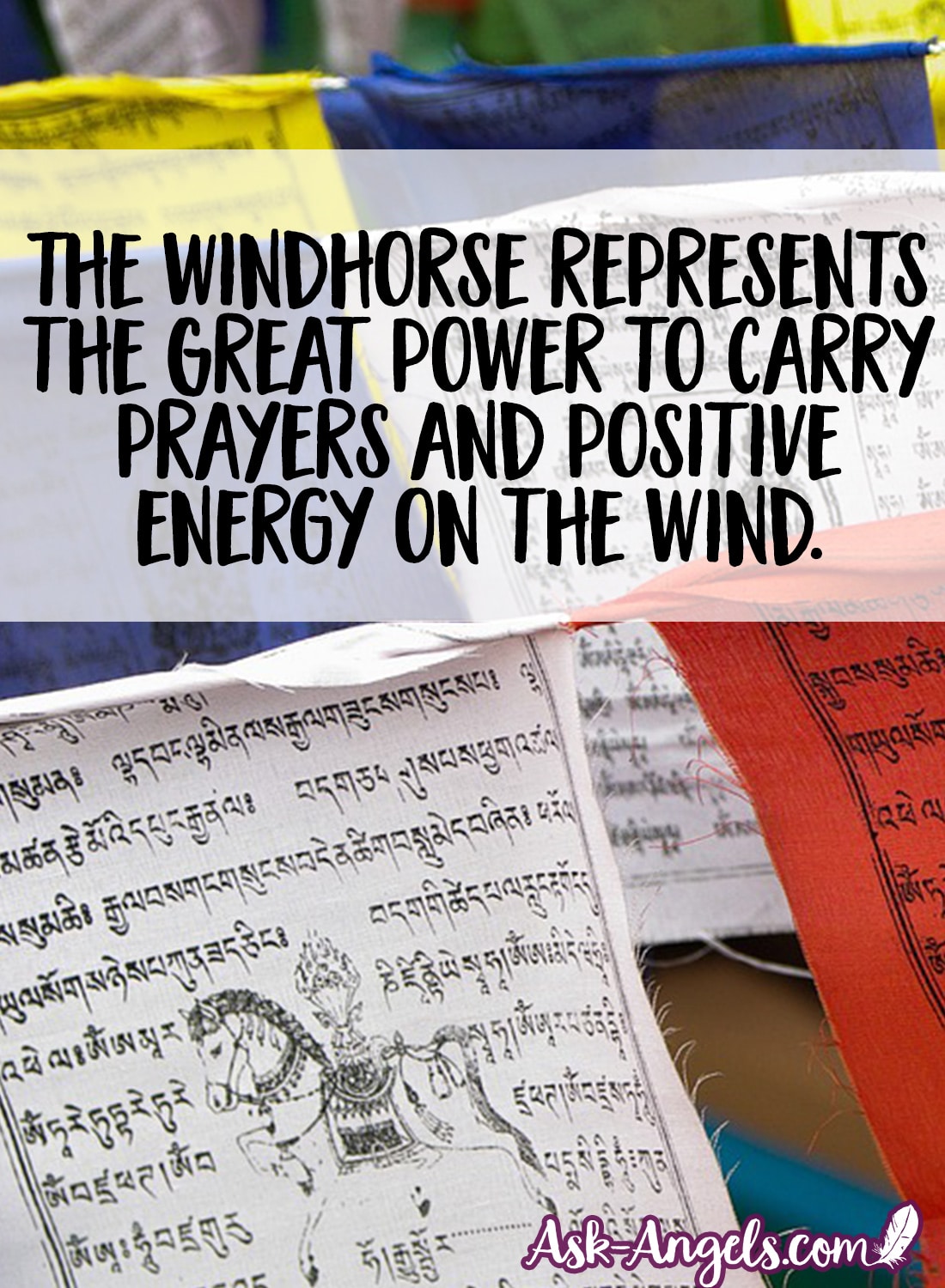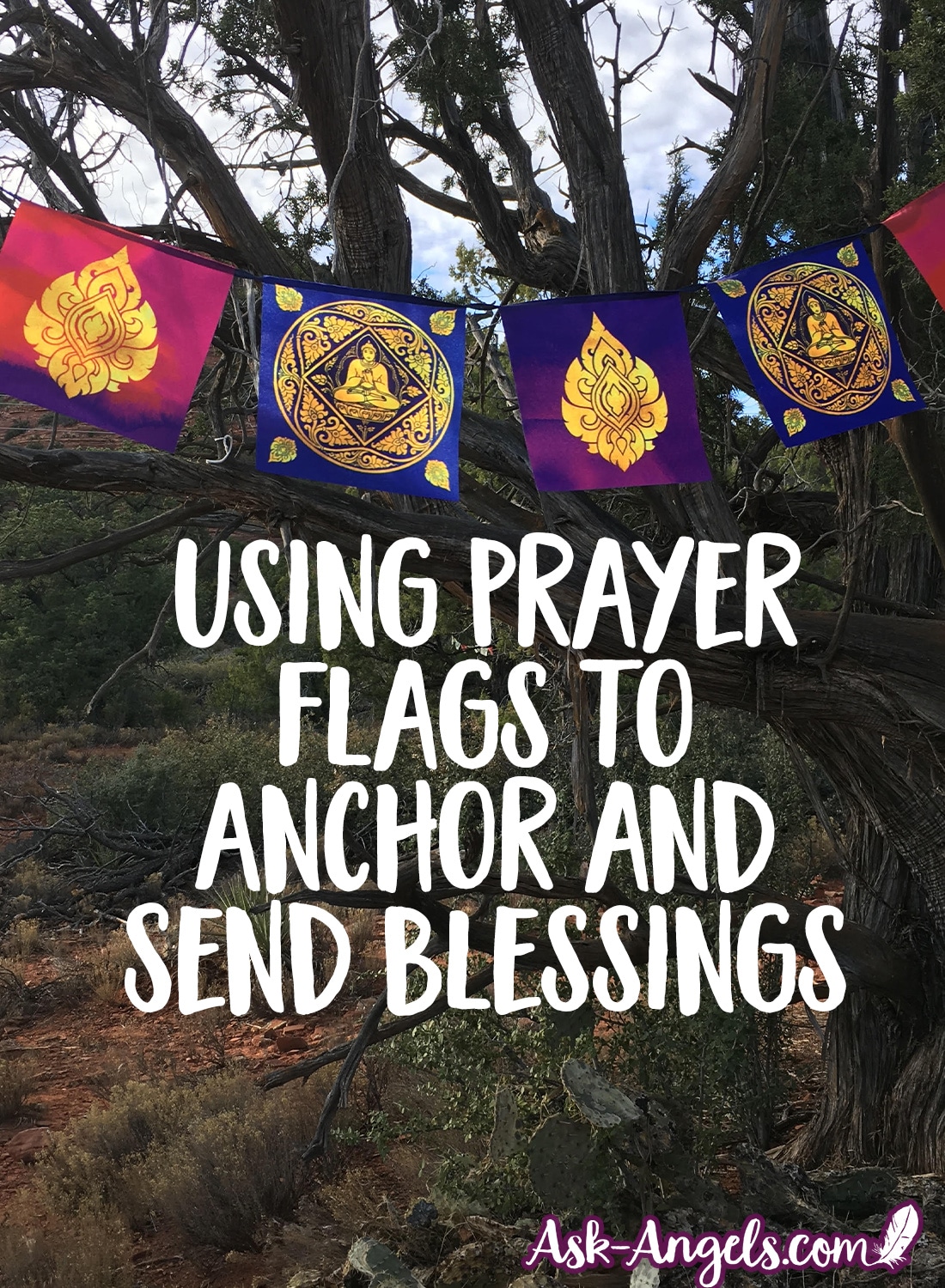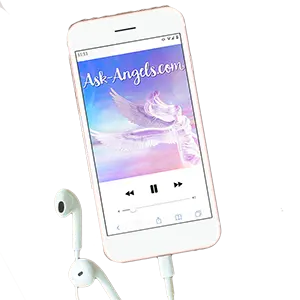There's really so much we can each do on an individual level, to help promote peace and well-being on Earth and for the collective.
Prayer Flags, while they may seem insignificant at first glance, are actually one of these ways.
Behind the colorful prayer flags you may have seen blowing in the wind if you've ever visited somewhere like a Buddhist Temple, Stupa, or Meditation Garden, there is a powerful intention and deep meaning.
What Are Prayer Flags Really?
The tradition of hanging Prayer Flags began in Tibet more than 2000 years ago as flags were highly hung among peaks in the Himalayan Mountains to bless those who passed beneath.
Today the use of prayer flags remains a vibrant and powerful tradition that has spread far beyond Tibet and even Buddhism, and has been adopted by people from many different cultures.
Prayer flags are a meaningful symbol, and when hung with the intention to bring world peace, kindness and generosity to all beings (as they traditionally are), they can actually create a powerful shift and inspire positive change for humanity.
Not sure if hanging prayer flags is something you’d like to do?
Let’s look at the deeper meaning and traditional use of the flags within Tibetan Buddhism.


FREE Book Reveals How to Unlock The Healing Power Of Angels Now!
Click The Button Below & Get Energy Healing With Your Angels FREE!
Click HereTibetan Prayer Flags

In the Tibetan language, the word for prayer flags is lung ta, which quite literally means Windhorse.
The Windhorse not only represents the ability to carry prayers and positive energy on the wind, but it represents great power, overcoming evil, and the ability to follow the path of liberation.
Prayers, mantras, and sacred symbols (sometimes including an image of a horse) are written onto colorful cloth squares, attached to twine, and strung along mountain ridges, and hung in sacred places and monasteries including between peaks high in the Himalayan Mountains.
Honor the 5 Elements with Prayer Flags

- Blue for space.
- White for air.
- Red for fire.
- Green for water.
- Yellow for the earth.
Balancing the five elements in places and in our own bodies and lives helps to bring harmony, health and well-being. The prayer flags created with this 5-color sequence both promotes and reminds us of the interconnectedness and balance of the elements.
Once created, prayer flags are then hung with intention and with the belief that as the flags flap in the wind, they will spread forth prayers and blessings for peace, compassion, strength and wisdom for all beings on the air.
Modern Use of Prayer Flags

You can of course purchase traditional Tibetan Prayer flags, or there are many modern prayer flags designs and styles.
Alternately, a fun and meaningful project could be to create your own prayer flags, or personalize Blank Prayer Flags with your own prayers, poems and the symbols that are meaningful for you to express your prayers and intentions for the well-being of all.
Where to Hang Prayer Flags
Prayer flags can really be hung anywhere, but they are perhaps best hung in a place where they will interact with the elements, and especially the wind which plays a role in carrying their prayers and intentions onward to bless the space around where they’re hung and far beyond.
How to Hang Prayer Flags
One of the biggest keys to hanging prayer flags correctly is to do so with the right intention. If you were to begrudgingly hang prayer flags around your home just to appease someone else, or even to “look cool” or just because someone gave them to you, you’d be missing the point.
Hanging prayer flags is to put out a living prayer for all beings. When hanging the flags in your space, contemplate on and hold the intention for all beings everywhere to be well and find true happiness.
A little tip I do have to share in regards to prayer flags is to prevent them from touching the ground.
Because the Tibetan tradition believes the flags to be holy, and that they contain real prayers and sacred symbols, mantras and intentions, they should be treated with respect.
For this reason, flags should not be placed on the ground or put in the trash. When your prayer flags have reached the end of their life, or you have to take them down for some reason, the best way to dispose of them is to burn them.
When burning old prayer flags you allow the smoke and fire to carry the prayers to heaven to again, bless and benefit all beings.
When Should You Retire Tattered Prayer Flags?
As a final note, I want to point out that respecting prayer flags does not mean you should try to prevent them from becoming worn, tattered, and frayed. In fact, well worn and frayed prayer flags are believed to show signs of working.
As the prayer flags disintegrate, more and more of their power is released on the wind.
As prayer flags age, you can even choose to hang new flags up among the old… This contrast between the new and the old brings an additional symbolism and reminder of impermanence, and that at all times the cycles of life and death continue on.
Prayer flags are a wonderful way today to bless the energy around your garden, and home with the balanced energy of the 5 elements, and with your positive prayers and intentions to be sent forth on the wind, to bless and benefit all beings.
I like these Hands of Tibet Flags because they have multiple translations of the prayers written on them (including English).
For Traditional Tibetan Prayer Flags these are a great option!
With love and bright blessings,



Get A FREE Angel Message Now And Tap Into The Healing Power Of Angels!
Click The Button Below For Free Instant Access!
Click Here

